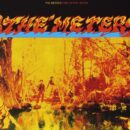If you read MC, you know that licensing your music to TV & film is one of the most effective ways to make money. It not only brings in a licensing fee upfront, but a steady stream of royalties on the back-end. How do you get into licensing if you’ve never done it? Or if you’ve been working at it without much success, how do you start getting those placements?
Here are five easy steps, from SyncSongwriter.com, to not only get you started, but help you do it successfully.
1) RESEARCH
You may have noticed that different TV shows or movies tend to use particular styles of music depending on the plot and vibe of the production. By understanding the kinds of music each one tends to go for, you can track down a show or upcoming movie that suits the way you write. Then all you have to do is find out who is doing the music supervision for the production and to send it to them when they happen to be looking for it. Sound difficult? This is actually pretty easy with some great online tools at your disposal.
The first place you’ll want look is Tunefind.com. There you can discover what music has been used in each episode of a particular show or movie. You can also type in the name of any artist you sound similar to, and find out if and where their music may have been synced before. Chances are if they had success in a certain show or film type, you might too. The other place to investigate is YouTube where almost every show, movie or ad has a list of all the songs that were included in their soundtracks.
While it is trickier to find out what kind of music an upcoming movie is looking for and when they need it, it is dead easy with a TV show. You can bet they are looking for the same kind of music they placed in previous episodes if it’s still on the air.
2) TARGETING
Next we want to find out who the music supervisor is for the show or movie we are going to target. To discover which music supervisor is working on which production, head over to IMDB.com and search for the show you are targeting. Scroll down until you find out who they are, then click on their name to check out their profile. You can also see what other productions they are working on as well. Now you know who to contact––you’re halfway there!
3) SONG PRODUCTION
Whether you are an artist pitching pre-existing songs, or you wrote one specifically for the production, everything you record has to sound top-notch. This is especially true with licensing. Remember, your recording will be the final version on the soundtrack. It has to sound as good as everything else that’s getting into TV & film. This is actually one of the easiest steps of them all, but is so often overlooked by songwriters.
Music supervisors consider the production value of your song first, even over whether it’s a great song or a great fit for the show. If it doesn’t sound as good as everything else they’re placing, they won’t even give it a listen. So, if you aren’t a pro in your home studio, just hire a music producer online. Nowadays you can get world-class sounds on your music without stepping foot in a studio. Just send the producer some examples of what you’d like yours to sound like, and you’ll be golden.
If you know what you’re doing in your home studio, just make sure everything––from the recording, to your mixing and mastering––sounds stellar. The true test is to put your song into a playlist along with other songs in your genre that are popular or have been synced before. If the production quality of your music stands up to them, you are good to go.
4) ORGANIZE
Now that your songs are recorded and ready to pitch to the music supervisors you’ve targeted, it’s time to make sure you’ve tied up any loose ends. The first thing you want to do is make sure you have an instrumental-only mix of your songs. Music supervisors will sometimes want to use a recording of your song without the vocals so it doesn’t interfere with the dialog on the screen. Second is to make sure you have included all the right metadata in your file before you send it. If you don’t know what to include, you can download a free guide here: syncsongwriter.com/metadata. This will help a music supervisor be able to file your song correctly and be able to contact you if they forget who sent it. Third, make sure you sign up with a performance rights organization (PRO) such as ASCAP, BMI, SESAC etc. These organizations collect royalties for you whenever your song is aired, and you sure don’t want to miss out on those. Lastly make sure that if you are not the sole writer, that you have a contract with the co-writer and they have given you permission to shop the song to TV & film.
5) PITCH YOUR MUSIC
So now it’s time to get your music into the right hands. Your biggest hurdle is that music supervisors are notoriously hard to connect with. Remember that they receive hundreds of songs a week from artists just like you trying to get into TV & film. By now though, you’re already head and shoulders above the vast majority of songwriters out there since you researched, targeted, produced, and organized your music properly in the first four steps.
The trick with getting your music heard when you’re starting out is to develop relationships with music supervisors directly, or go through people who already have relationships with music supervisors. If you don’t have the opportunity to be introduced to the gatekeepers, find yourself a reputable licensing agent who believes in your music. You will have to give up a percentage of the upfront sync fee, but it will be well worth it if you can start getting placements with your songs. Once you build a reputation with some sync placements it will be much easier to start reaching out to music supervisors yourself. This way you will be able to keep the whole sync fee, and it will make it easier to build relationships in the industry from your previous successes.
Either way, when it comes time to send out your music, keep your email short, friendly and only include a link to download your best, targeted songs. Never include MP3’s as you will guarantee your email ends up in the trash.
I have taught these five steps to many singers, musicians, and songwriters who successfully got their songs into TV & film over and over again. Most importantly, I’ve introduced them to top music supervisors so they could start developing those first valuable relationships in the industry.
Chris Shreenan-Dyck is an award-winning music producer who has worked on gold and platinum-selling albums, and licenses artists’ music to TV & film. He also teaches musicians how to license their own music successfully and introduces them to top music supervisors. Find out more at Sync Songwriter, syncsongwriter.com.














